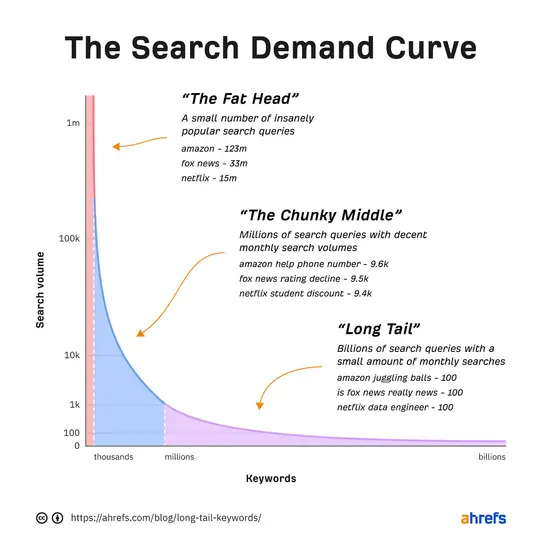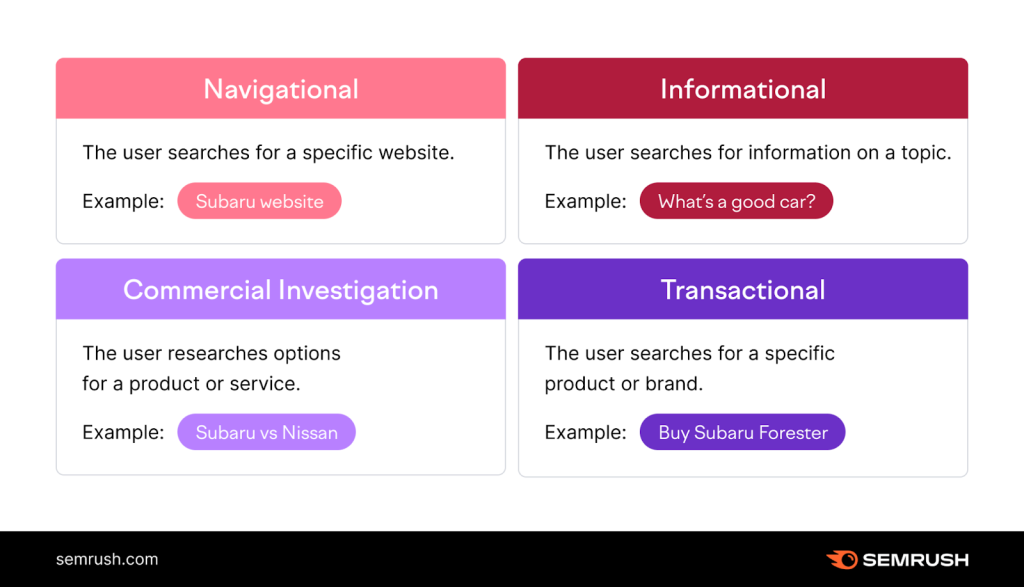- Ronald Zane
Explaining the Digital Dictionary: A Guide to Types of Keywords
The extensive landscape of information is manageable with the thrill of search engines. But these digital entryways rely on more than just ropes and code;
they work on a secret language, a language of types of keywords. Tolerating these keywords is as vital as learning a new language, for they hold the key to revealing online visibility and success.
So, whether you’re an experienced explorer of the digital world or just starting your journey, buckle up! We’re plunging deep into the vast kingdom of types of keywords, dividing their functions, applications, and ultimate importance in the realm of SEO.
“Knowing how to distinguish between an ideal keyword and the reality of queries will help you to refine your strategy and success as an online marketer.” – Neil Patel
Let’s begin with the four essential types of keywords that form the backbone of every search engine’s demand.
What are we talking about in this article?
ToggleKeyword Types Based on Length

Short-Tail Keywords
Short-tail keywords contain of brief, one to three-word phrases that apprehension broad search queries.
They are brief but frequently highly competitive.
For example, “digital marketing” or “web design” are short-tail keywords.
While they generate large traffic, they may dearth specificity.
Mid-Tail Keywords
Mid-tail keywords attack a steadiness between specificity and spread.
These are longer, more targeted expressions, typically including three to four words.
An example is “social media marketing strategies.” Mid-tail keywords appeal a more defined spectators, offering a balance between attractiveness and accuracy.
Long-tail Keywords
Ruminate them as hyper-specific phrases like “gluten-free vegan brownie recipe with almond flour.”
They are less competitive than wide-ranging keywords and attract greatly targeted audiences.
Keyword Types Based on User Intent

Informational Keywords
These snooping critters, like “how to grow orchids” or “causes of climate change,” are powered by a hunger for knowledge.
They’re the perfect goals for informative blog posts, articles, and tutorials, starting you as a trustworthy source of information.
Navigational Keywords
Think map-makers, guiding users to exact online terminuses. “Facebook login page” or “download Spotify app” are major examples.
Boosting for these types of keywords guarantees people easily find what they’re looking for, boosting user satisfaction and assignment.
Commercial Keywords
These deal-hunters polish the web for the best giveaways. “Discount laptops under $500” or “compare travel insurance plans” fall under this category.
Pointing out these types of keywords entices potential customers ready to make a purchase, paving the way for translations.
Transactional Keywords
The action heroes of the examining world are ready to click “buy now” or “subscribe.” “Order pizza online” or “Book a flight to Bali” embody this group.
Enhance these types of keywords and get prepared to observe the magic of real-time translations!
But the dictionary of types of keywords doesn’t stop there!
Other Types of Keywords
Local Keywords

“Plumber near me” or “best sushi restaurant in town” symbolize these location-specific warriors.
They’re essential for local industries, appealing to customers searching for services or products in their immediate neighborhood.
Branded Keywords

These proud adventurers wear your company name like a badge of honor, like “Nike sneakers” or “Microsoft Office.”
They build brand awareness and protect your online ground.
Understanding intent is key
Summon up; each type of keyword expresses a different language.
It’s vital to understand the user’s intent behind each search.
Are they investigating? Associating options? Ready to buy? Modifying your content to match their determination is the secret impertinence to maximizing engagement and alterations.
Mastering the SEO Spell
So, you have discovered a diverse battery of types of keywords. Now, how do you wield them for supreme SEO benefit?
- Research and Analyze: Use keyword research tools like Google Keyword Planner to determine search volume, competition levels, and related keyword recommendations.
- Content Optimization: Scatter your selected keywords throughout your content, including titles, headings, and meta descriptions, but ensure a natural flow and avoid keyword stuffing while considering keyword density.
- Track and adapt: SEO is a flight, not a purpose. Monitor your rankings, analyze user performance, and adjust your approach accordingly.
- Competition Analysis: Don’t charge sightlessly into the battle against SEO hulks. Research your competitors’ keyword strategies and identify chances to outsmart them in less competitive niches.
- Tools of the Trade: Consume keyword research tools like Google Keyword Planner or SEMrush to determine search volume, competition levels, and related keyword recommendations. These tools are your digital scope, guiding you toward SEO conquest.
Remember, keywords are living stuff! Stay efficient with new trends, monitor search demands in your niche, and adapt your strategy accordingly. Elasticity and continuous learning are essential for staying ahead of the ever-changing SEO game
The Final Chapter
In the philology of the internet, types of keywords are the ABC, the construction blocks of online prominence.
By understanding their grades, exerting them strategically, and optimizing for SEO, you unlock the mysteries of reaching your target audience, improving renovations, and eventually conquering the digital landscape.
So, clutch your keyword dictionary, investigate the different types, and start writing your own SEO success story!
*Attribution*
- Cover Image: Image by Freepik
- Article Images: Ahrefs.com / Semrush.com



